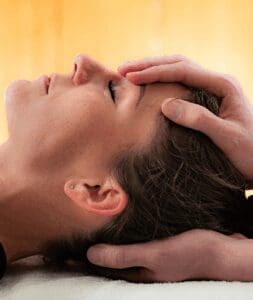

Feeling stressed or overwhelmed? At Longev Clinic, we know how daily life can take a toll on your body and mind. Simple practices like breath work and heart coherence can help reset your nervous system, reduce anxiety, and improve focus.

How Breath work Restores Nervous System Balance
Breath work is more than just deep breathing—it activates your parasympathetic nervous system, responsible for rest, recovery, and overall balance. Practicing for just 2–5 minutes daily can:
- Reduce stress and anxiety
- Improve focus and mental clarity
- Support emotional well-being
A practical way to start:
- Take slow, deep breaths
- Notice the depth and length of your inhale and exhale
- Extend your exhale to promote relaxation
- Try coherence breathing to improve heart rate variability.
Try this guided example: YouTube Link
The Role of Osteopathy in Stress Relief
Pairing breathwork with osteopathic care enhances stress relief. Osteopathy helps:
- Release tension in muscles and fascia
- Improve circulation and joint mobility
- Support nervous system function
- Promote overall balance and wellness

Our osteopath at Longev Clinic, guides patients to engage more with their bodies, helping them stay grounded, relaxed, and focused on their goals.
Signs Your Body May Be Under Stress
Stress often builds slowly, showing subtle signs such as:
- Faster heart rate or shallow breathing
- Lower heart rate variability
- Sleep disruption or fatigue
- Digestive issues or appetite changes
- Muscle tension or jaw clenching
- Hormonal or skin changes
Regularly checking in with your body through breathwork and osteopathy can prevent chronic stress and support long-term wellness.
Take the First Step to Stress Relief
Prioritize your nervous system health today! Book a session at Longev Clinic to explore how breathwork, heart coherence, and osteopathy can help you reduce stress and restore balance.
Resources:
Heart rate variability biofeedback in a global study of the most common coherence frequencies.



